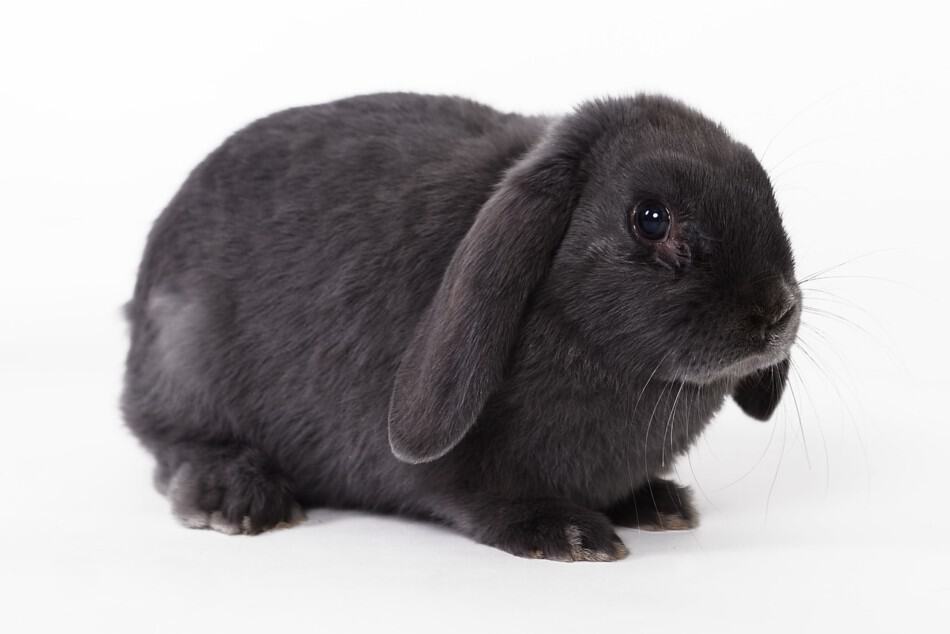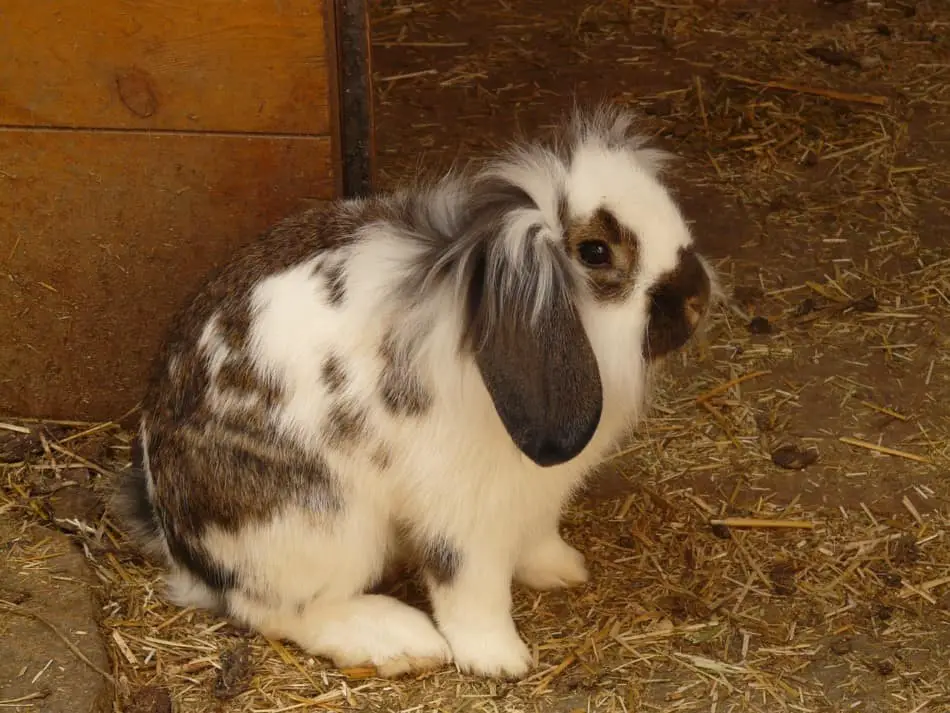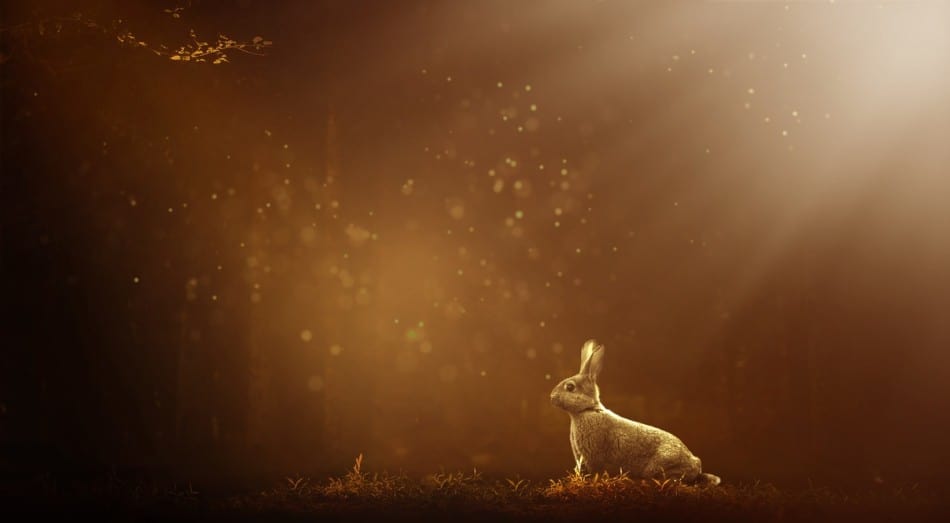Bunny rabbits may be adorable, but are they scared of the dark? They’re also some of the most vulnerable animals out there.
In the wild, they’re often considered as prey by bigger carnivores like lions and tigers. In a domesticated setting, however, rabbits are seen as easily scared or surprised, even though there are no predators nearby.
Are rabbits are scared of the dark?
They’re not scared of the dark, per se. However, they do become more alert as to what might come after them in the dark. Pet owners usually misunderstand this as fear, but it’s actually more complex than that.
Table of Contents
Can Rabbits See In the Dark?
Nighttime is certainly a huge problem for most animals. This is because of the fear that a larger animal than themselves will eat them. This is why prey animals in the wild have developed their senses enough in order to cope with their environment.

Similarly, rabbits don’t have the best eyesight in the world. As prey animals, they definitely have better eyesight than we humans when it comes to lowlight conditions.
In fact, the dimmer it is, the better their eyesight becomes.
They may not be able to see in pitch-black darkness, but they can easily make do even in low visibility. This is because rabbits make all their senses work together to get an accurate feel for the area around them.
They use their ears to pick up even the slightest of sounds. With their noses, they can distinguish smells even from a distance away.
If you’d like to know more about a rabbit’s vision, especially during night time, you can check out our article here.
Are Rabbits Scared Of The Dark?
Rabbits aren’t scared of the dark, but they tend to be a bit more on edge the darker it becomes.
The reason for this is quite logical, really. If they can’t rely on their eyesight, then they have to rely on their other senses. Their sense of hearing and sense of smell come into play now.
These senses become much more sensitive at night, and means that the bunny will be a lot more alert as well.

Pet owners tend to confuse this sudden alertness with fear, when in fact it’s not.
To put it simply: While rabbits aren’t scared of the dark, they just want to make sure that there’s nothing out there in the dark that they should be scared of.
People often think Guinea Pigs get scared easily as they ‘ Popcorn’ around their cage. But it’s the total opposite, ‘popcorning’ for guinea pigs and other animals is a sign of happiness. Read all about Popcorning here in another one of our articles.
Do Rabbits Scare Easily?
That said, rabbits do have some kind of reputation as being easily spooked.
In a way, it is quite true. Rabbits are naturally careful critters. This means they tend to be more protective of themselves, their hutch, and especially their babies if they think that there’s even the slightest risk of harm.
However, it doesn’t need to be dark for this to happen. In fact, most rabbits will prefer a dim area to a bright area when faced with the threat of danger.
Any pet owner who has ever spent an extended time with rabbits at home will probably remember a time when their rabbit suddenly sprinted under the couch, the fridge, or similar sheltered place, after hearing a ‘loud’ sound – such as the sudden opening of the kitchen door.
This just goes to show that rabbits have no problem in dark areas. They even consider it refuge from potentially dangerous situations. It’s just that rabbit senses are extremely sensitive, so it’s only natural that they’ll react more strongly to seemingly ‘normal’ things.

What Scares Rabbits?
Many things scare Rabbits, including unknown people or animals, unexpected sounds, sudden movements, and even strange smells.
Their reflexes have developed after years and years of avoiding predators in the wild. Predators which typically use the element of surprise to pounce on their prey, like rabbits.
Of course, rabbits which have already been domesticated may not have instincts as strong as their wild counterparts. Those instincts are still there, to some extent.
Think about it from the point-of-view of a vulnerable wild rabbit. You’re out foraging for food when your nose detects a subtle smell. It’s not another rabbit, that’s for sure.
The leaves around you are rustling softly – something is there! What could it be? Your whiskers tremble as you try to listen to your surroundings. It’s coming.
The moment your ears pick up that low growling sound coming from a few meters away, you’re off! You sprint away to a safe shelter.

Do Rabbits Need Darkness To Sleep?
While many people think that rabbits are nocturnal, the truth is that they’re not. Contrary to popular belief, rabbits are actually crepuscular animals, meaning they tend to be more active at twilight, or at moments of dawn and dusk. Their status as prey animals makes it hard for them to be up and about during the bright daytime.
However, it’s also just as difficult to navigate pitch-black darkness. Dim light during dusk and dawn is the perfect time for them to go about their activities with relative safety.
Unlike humans, rabbits aren’t exactly wired to sleep based on the position of the sun. They don’t care whether it’s light or dark outside just to sleep – if they feel they need to, they will. The important thing is that they have a warm and safe space to sleep in, such as a dark burrow or a hidden hutch.
Most of the time, rabbits will sleep if they feel tired or if their energy levels are lower than usual. If your pet is already snoozing at 4 pm but has been playing since dawn, there’s no need to worry.
Keep in mind that rabbits are extremely sensitive to change in lighting, so always try to keep its burrow constantly dim if you can.

Conclusion: Are bunny rabbits scared of the dark?
Simply put, no, rabbits aren’t scared of the dark.
However, as prey animals, rabbits are naturally careful critters.
They spook easily, especially when they don’t know what’s happening around them. In the wild, predators hide under the mask of darkness to attack rabbits, so this is why many rabbits have the instinct to become more alert in the dark.
This doesn’t mean that you have to leave a nightlight on for your bunny though! Just provide a warm, comfortable, and most of all, safe place for it to stay at night and it will certainly be fine.




